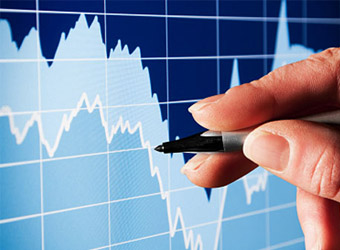Egypt ranked 114th out of 177 in the Corruption Perceptions Index 2013, conducted by the global coalition against corruption Transparency International, which surveys the corruption levels of countries worldwide.
The report also indicated while it may have moved up slightly in the rankings, Egypt’s score saw no change from 2012. The study rates a country’s perceived level of public sector corruption on a scale of 0-100, where 0 signifies high corruption and 100 represents a very clean system, with Egypt scoring a 32.
Assem Soliman, former deputy chairman of the Central Auditing Organisation (CAO) and current president of the Egyptian Centre for Transparency and Anti-Corruption, said that the indicators of corruption in Egypt are “very dangerous.”
“Even after the 25 January and 30 June revolutions, the corruption remains systematic and standardised,” he said. “The flaw is within the laws themselves, which were customised to serve a group of people during the Mubarak regime.”
Soliman said among the corrupt laws are those “issued by the Central Bank of Egypt, bid laws, stock market laws, trading company laws and some laws that served the supervisory authorities.”
Soliman explained that some officials who work in the public sectors have private investments “which they don’t disclose” and they issue decisions that may benefit their private business and create conflicts of interest.
The corruption reports must be publicly disclosed, he said, as to increase the fear of the consequences of engaging in secretive agreements.
“The pressure to not engage in corruption cases will increase if the corruption reports were released to the public and not just to the businessman or figure who engaged in corruption,” he said.
Soliman added that the low rates of follow-up from supervisory bodies also play a role in the current corruption rates.
“The level of punishment that the head of the supervisory bodies receives is very low when comparing to the volume of corruption that may exists and this why is the follow up rates is low,” he said.
Soliman also added that the heads of the supervisory bodies must be given the necessary power to pursue corruption cases more vigorously, and the bodies themselves must be independent from the country’s administrative bodies.
“The Corruption Perceptions Index 2013 serves as a reminder that the abuse of power, secret dealings and bribery continue to ravage societies around the world,” the report read.
The report added that 84% of the counties in the Middle East and Africa region scored lower than 50. The top scorer in the region was United Arab Emirates (UAE), scoring 69, while the country with highest level of corruption was South Sudan, which only scored 14.
Sixty nine percent of the countries worldwide featured in the report scored less than 50, which the report said “indicates a serious corruption problem.”
“It is time to stop those who get away with acts of corruption,” said Huguette Labelle, chair of Transparency International. “The legal loopholes and lack of political will in government facilitate both domestic and cross-border corruption, and call for our intensified efforts to combat the impunity of the corrupt.”
Egypt’s rank in the 2012 report was 118, out of the 174 countries surveyed. The country received a 112, out of 182, in 2011 and 98, out of 178, in 2010.
Denmark, New Zealand, Sweden, Finland and Norway were the “cleanest” countries, scoring 91,91,89,89 and 86 respectively. Somalia scored the highest level of corruption, registering only a score of 8. It was preceded by Afghanistan, North Korea, Sudan and South Sudan.


